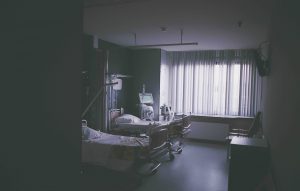 There are many different ways that elder abuse and neglect can happen in Rancho Bernardo, and seniors can suffer from a variety of injuries as a result of nursing home negligence. While we often think about scenarios in which injuries can occur in skilled nursing facilities, should older adults and their families also be thinking more carefully about elder neglect or negligence in hospitals, and what this means for a senior’s long-term health? According to a recent article in The New York Times, many elderly hospital patients end up suffering serious injuries as a result of “post-hospital syndrome.”
There are many different ways that elder abuse and neglect can happen in Rancho Bernardo, and seniors can suffer from a variety of injuries as a result of nursing home negligence. While we often think about scenarios in which injuries can occur in skilled nursing facilities, should older adults and their families also be thinking more carefully about elder neglect or negligence in hospitals, and what this means for a senior’s long-term health? According to a recent article in The New York Times, many elderly hospital patients end up suffering serious injuries as a result of “post-hospital syndrome.”
What is post-hospital syndrome? In brief, it is tied to hospital readmissions and inadequate care among seniors, according to the article. Who is responsible when elderly patients sustain serious injuries as a result of post-hospital syndrome?
Understanding the Harms of Hospital Readmissions Among Seniors
You might be wondering: What is wrong with hospital readmissions? In other words, would it not be better for an older adult to be readmitted to a hospital if something is wrong instead of remaining in her home with a caregiver or in a nursing home where staff members are not able to properly treat her illness or injury? Hospital readmissions often result from problems that occurred during the senior’s initial hospitalization. The article describes the “stress and disruptions of hospitalization,” which tend to include “interrupted sleep, weight loss, mild delirium, [and] deconditioning caused by days in bed.”
When seniors require hospital care and then are readmitted a short time later, the readmission often is not for the same condition or problem. Instead, the older adult is being readmitted with a new (and often serious) health issue. Based on records from the Centers for Medicare and Medicaid Services, “about 18% of discharged Medicare beneficiaries returned to the hospital within 30 days” of the initial discharge.
Period After a Hospital Discharge is One of “Increased Vulnerability”
When seniors are discharged from the hospital, caregivers—whether those are in-home caregivers or staff members at a skilled nursing facility—need to recognize that “discharge marks the start of a 60- to 90-day period of increased vulnerability to a range of other health problems, stemming from the stress of hospitalization itself.” In other words, medical negligence likely is not the primary cause of hospital readmissions, but instead negligent care under the circumstances after a hospital discharge.
Risks for certain illnesses and injuries tend to rise in the first few days after a hospital discharge, such as anemia or gastrointestinal bleeding. Other increased risks can remain for anywhere from three to five weeks, including increased risk of falls. Who is liable when a patient suffers a serious injury after a hospital discharge?
Patient safety advocates suggest that hospitals need to change procedures when it comes to caring for senior patients in order to make the hospitalization less stressful. At the same time, nursing homes have a duty to provide the type of care a patient requires, and that may mean additional attention after a hospital discharge. A lack of attention to the specific needs of a patient following a hospital discharge could amount to nursing home negligence.
Contact a Rancho Bernardo Elder Abuse Lawyer
When you have concerns about an elderly loved one’s health, you should speak with a Rancho Bernardo nursing home abuse attorney about your options. Contact the Walton Law Firm today for more information about how we assist families in San Diego County.
See Related Blog Posts:
Is a New California Nursing Home Website Doing More Harm Than Good?
What Poway Families Should Know About Self-Inflicted Elder Abuse
(image courtesy of Daan Stevens)
 Southern California Nursing Home Abuse Lawyer Blog
Southern California Nursing Home Abuse Lawyer Blog








